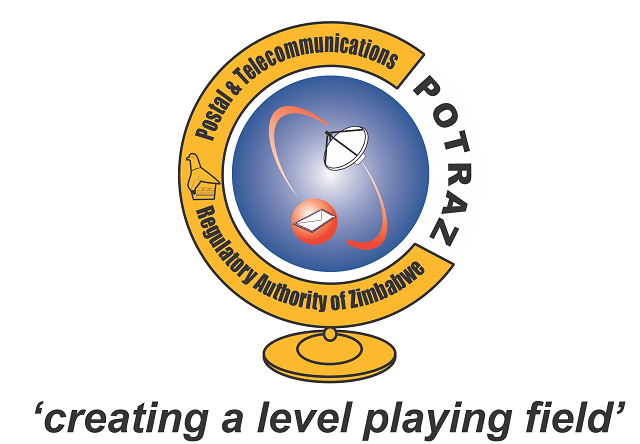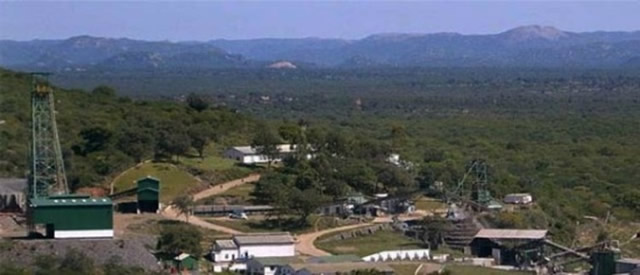EDITORIAL COMMENT: Potraz must stick to its functions — that of a regulator

THE smart data network now brings you data bundles which come with 100% free Wi-Fi from as little as 50c.
The bar has been raised. Get yourself the new social media bundles which come with 100% free Wi-Fi from as little as 50c.
These are the two messages the country’s largest mobile network operator (MNO) Econet bombarded its subscribers with via SMS throughout most of yesterday.
And for sure, Econet literally raised the bar by becoming the first MNO to implement the massive new tariff hikes directed by regulator Potraz.
What Econet didn’t mention in its unsolicited SMSes to millions of its subscribers was that the new social media bundles which come with “100 percent free Wi-Fi from as little as 50c” were actually more costly compared to the old bundles.
For example, under the old social media bundles, $1 got you a week of WhatsApp, but under the new charges unveiled yesterday, $1 now gives you 30MB and 30MB Wi-Fi for WhatsApp and Facebook. Wi-Fi is only accessible at Econet hotspots that are generally located in the central business district.
In fact, under the new tariff regime, social media bundles on Econet are no longer pegged individually or as weekly or monthly offerings, but are instead based on data usage.
This is just a part of the new high data costs Econet implemented yesterday. But why is mobile data so expensive when MNOs throttle speeds after all?
It’s no secret that MNOs are now dominated by data traffic and could the latest Potraz directed tariff hikes be aimed at helping them offset their sharpening decline in revenue from voice calls?
Due to the decline in voice service revenue, MNOs had scrambled to offer a variety of data promotions that saw, for example, $1 buying 250MB on Econet for a 24-hour usage, while NetOne and Telecel offered 300MB for $1 for the same duration.
However, that is now all out through the window with Econet indicating that $1 will only buy a subscriber 10MB plus the bonus 10MB on Wi-Fi, 1.5GB will set you back $35 and the highest amount of data you can get is 2.5GB plus 2.5GB bonus on Wi-Fi at a cost of $50.
Potraz director-general Dr Gift Machengete justified the regulator’s prescribed price hike, saying Zimbabwe is landlocked and has no cable landing stations. He said this meant the country had to access submarine cables through third party countries, which made access to international bandwidth much more expensive.
He also said the decision was meant to protect the mobile telecoms industry, which has been facing a decline in revenues due to the slow death of voice communication in the face of Over the Top (OTT) Internet services such as WhatsApp and Facebook.
But are we the only landlocked country in Africa affected by the high cost of access to international bandwidth?
How does Potraz explain the cost of 1GB costing $3.60 in Uganda, $5.80 (Malawi) and $5.80 in (Burundi)?
Our data prices are about five times more expensive than these landlocked countries. Why is our access to international bandwidth so expensive? It can’t just be so because we are landlocked?
We thought the functions of a regulator were to ensure a level playing field, so why protect the MNOs and rip off the subscribers? It seems Potraz is colluding with the MNOs to deny the majority of Zimbabweans access to mobile data.
All three MNOs reported increased revenue and fourth quarter profits for 2016 strongly driven by data and it doesn’t make business sense to suddenly price a product out of the market. Yes MNOs are under pressure, but they must find more innovative and attractive business models to increase revenue.
Why is Potraz aiding the greed of MNOs? What have they done to deserve such a price hike? Poor services haven’t been addressed and what will motivate them to improve if they know the regulator will reward them anyhow for their inefficiency?
The majority of mobile phone subscribers in this country simply cannot afford the new charges and the sooner Potraz and MNOs realise that, the better.
In fact, this hike will sadly set us back to the pre-Internet era in a knowledge economy age.
OTT services have reduced voice traffic volumes, but that can’t justify the punishment meted on innocent and long-suffering subscribers.
The truth is that protectionism is a short-term solution. MNOs must adapt or die?











Comments